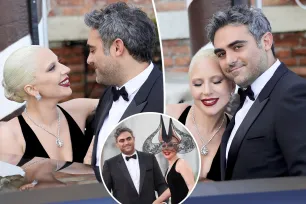There is no shame in admitting if you’re dumbstruck by the declaration at the end of director Mari Selvaraj’s new film, Vaazhai. It reveals that everything you’ve seen so far was based, in part, on the filmmaker’s own experiences growing up in rural Tamil Nadu in the 1990s. This revelation comes on the heels of perhaps the most unbearably melodramatic stretch of cinema in recent memory, one that leaves you wondering if you’re even allowed to question Selvaraj’s many storytelling missteps, now that you know that he was baring his soul for the world to see.
In India, movies about noble subjects invariably get a pass from the public because any disrespect towards the film is seen as disrespect towards the person that the film is about. It’s a deeply flawed way to approach storytelling. Reverence like this — either for filmmakers, stars, or historical figures — is how you end up with stuff like Sam Bahadur getting positive reviews. And so, with all due respect to Selvaraj and his story, what in the world was he thinking? Vaazhai is an especially disorientating autobiographical film, one that goes from Malgudi Days-style nostalgia to straight-up cruelty porn in the span of a few minutes.

After steering the film recklessly close to the edge of a cliff for about an hour, Selvaraj effectively kicks it into a gorge towards the end, displaying the sort of carelessness that makes you wonder if he’s some jealous rival determined to sabotage the project. Glowing marquees had already advertised his tendency to teeter towards the cloying — the interval block is particularly painful — but nothing can prepare viewers for the narrative whiplash of the film’s extended climax.
Also read – Kottukkaali: The best Indian film of the year so far proves that PS Vinothraj is an unparalleled poet of the people
 A still from Mari Selvaraj’s Vaazhai.
A still from Mari Selvaraj’s Vaazhai.
It comes out of nowhere, because nothing leading up to it suggests that the movie is going to make a tonal shift this drastic. There are other reasons to complain about Vaazhai in the first hour, but they all pale in comparison to the ending. Selvaraj’s stand-in is a child named Sivanaidhan, who spends his days doing regular schoolboy stuff with his best buddy, Sekar. But on the weekends, he participates in the village’s primary trade — transporting bananas from the field to trucks that will carry them to the cities. Sivanaidhan carries stacks of these bananas on his head, at great physical cost. Teachers at school tut-tut at his situation, but they can understand his family’s desperation.
Sivanaidhan’s father, a card-carrying communist, was killed some years ago, leaving his mother to take care of him and his elder sister, Vembu. He shows promise as a student, and as hard as Sivanaidhan might try to play hooky from work, his domineering mother won’t hear of it. She sends him off to the fields with a smack on the head. The interval is when things begin to take a grim turn. In a moment of carelessness, Sivanaidhan lets the family cow out of his sight, and it stumbles onto the private property of the local trader. This man, a character straight out of an Amitabh Bachchan movie from the 70s, shows up at Sivanaidhan’s village to tell him off and demand damages from his mother. Humiliated in front of her people, she rips off her only earrings and hands them over to him.
Sivanaidhan is destroyed by the hurt that he has caused his mother. Bawling uncontrollably, he gives her the permission to ‘beat and kill’ him if he skips work every again. It’s an indefensibly overwrought scene, one that feels like it has been plucked out of a movie from 1965. Determined to keep his head down, Sivanaidhan settles into this sorry existence after the interval. But when he is invited to participate in his school’s annual function, which would require him to practice over the weekends, he reverts to his scheming ways. Fully aware that his mother won’t tolerate any such behaviour again, he takes his sister and a local revolutionary man named Kani in his confidence. Sivanaidhan skips off to school, where he enjoys a fun dance session, and then makes his way back to the fields where he’s supposed to regroup with the other labourers.
Desperately hungry, he plucks a banana from a tree, only to be caught and beaten by a watchman of some kind. He instinctively makes a beeline for his house, where his angry mother greets him by hurling a bucket in his direction. Sivanaidhan runs off to the river, where he collapses out of exhaustion. When he wakes up, he sees the entire village gathered outside their homes, surrounded by the police and medical professionals.
What he sees rocks him to the core. The dead bodies of his friend Sekar, the revolutionary Kani, and his sister have been arranged for public display, alongside over half-a-dozen others who died because the dangerously overloaded truck carrying them back from work toppled over on the way. There is a dramatic clap of thunder, and we cut to a ridiculous black-and-white flashback of the villainous trader commanding all the labourers to get on the doomed truck, knowing that it can’t carry their weight.
The next 20 minutes are utterly irresponsible. Sivanaidhan walks from house to house, staring silently at the dead bodies on display, while scores of villagers beat their chests and howl at the top of their lungs. Much of this is filmed in slow-motion, while composer Santhosh Narayanan has a singer wail loudly in the background. By the way, the film’s two other songs — they played over montages in the now-harmless first half — had the pop quality of something that even Halsey would consider album filler.
As if this weren’t manipulative enough, Selvaraj chooses to show us the accident next. Not only does this feel entirely unnecessary — you can’t really feel any worse at this point — but it separates us from Sivanaidhan’s perspective for the first time in the film. There are more screams as Kani tries to save as many people as he can, before succumbing himself. The mournful music doesn’t stop. The entire thing is filmed in a monochrome that coats the chaos in a layer of romance. It’s completely misjudged.
Read more – Ullozhukku: Unseen but not unheard, the stand-out performer in Malayalam cinema’s thrilling new gem isn’t Parvathy or Urvashi, but a secret third lead
 A still from Mari Selvaraj’s Vaazhai.
A still from Mari Selvaraj’s Vaazhai.
Why in the world would Selvaraj reduce the most pivotal incident of his youth, an incident that he is clearly still traumatised by, to essentially a third-act twist? This isn’t like the extended mayhem at the end of Shoojit Sircar’s Sardar Udham, because that movie was always building towards it. In fact, by spending so much time on relatively innocent plot threads like Sivanaidhan’s crush on his teacher, and Kani’s revolutionary politics, Selvaraj misleads you into believing that the movie is about something else entirely.
It’s unfortunate to see the filmmaker fall back on cheap tropes like red herrings and plot twists while unpacking past trauma. His tonal indiscipline, after all, is what leads to that trainwreck of an ending. But perhaps the answer for this inconsistency lies in the movie itself. Sivanaidhan and Sekar often bicker about their favourite stars, Rajinikanth and Kamal Haasan, and it becomes apparent after a while that their aesthetics have deeply influenced Selvaraj as a filmmaker. It leaves him in the odd position of being unequipped to tell his own story.
Post Credits Scene is a column in which we dissect new releases every week, with particular focus on context, craft, and characters. Because there’s always something to fixate about once the dust has settled.
Post Credits Scene is a column in which we dissect new releases every week, with particular focus on context, craft, and characters. Because there’s always something to fixate about once the dust has settled.
Disclaimer: The copyright of this article belongs to the original author. Reposting this article is solely for the purpose of information dissemination and does not constitute any investment advice. If there is any infringement, please contact us immediately. We will make corrections or deletions as necessary. Thank you.







